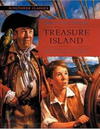 The Innocents Abroad by Mark Twain
The Innocents Abroad by Mark Twain

Summary
When you dive into Mark Twains The Innocents Abroad, you have to be ready to learn more about the unadorned, ungilded reality of 19th century touring than you might think you want to learn. This is a tough, literary journey. It was tough for Twain and his fellow pilgrims, both religious and otherwise. They set out, on a June day in 1867, to visit major tourist sites in Europe and the near east, including Greece, Turkey, Lebanon, Syria, the Holy Land, and Egypt. What Twain records, in often humorous, sometimes grotesque but always fascinating detail, are the day-to-day ups and downs of discovering the truth about people and places. The truths they learn are often far different than their education and rumor have made them preconceive.This is a voyage of discovery. Its long and, in places, tiresome. But its revelatory about so much. As with some of his other works, Twain includes popular prejudices of his time, which are today considered socially unacceptable. His references to Indians, Negroes and infidels come to mind.Beyond the lows, though, there are the highs of Twains cutting wit and insight as he guides us along the bumpy and often dangerous voyage.No need to buckle up. Just take it slow, and steadylike the journey itself. (Summary by John Greenman)
Description
Customers Who Viewed This eBook Also Viewed
Updated: February 6, 2026 10:43













